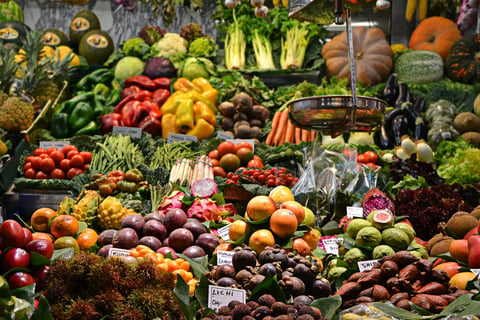
Sugar seems to have become a bit of a dirty word these days—and for the most part, rightly so. Processed sugar is in so much of what we eat that our average intake has gone up to around 3 pounds per week (it used to be around 2 pounds a year!). This increase is staggering, and it’s largely due to the world switching to convenience food and manufacturers using sugar to preserve it.
What is refined sugar
The term refined sugar refers to a type of sugar that comes from plants, for example, beets and cane. After cooking them, the juice is extracted and processed until crystalized.
It’s a type of sugar commonly used in a household to sweeten all kinds of foods, such as coffee, cookies, cakes, and much more. It is also used by food manufacturers in other processed foods and beverages, for example, sodas.
Why is refined sugar bad for health
While having some sugar in your diet is necessary for your body to function properly, it is best to avoid using refined sugar as much as we do. The reason for this is that refined sugar can cause all kinds of problems like obesity, heart disease, hypertension, depression, diabetes, dementia, and other potentially serious health issues.
The best way to cut back on refined sugar, is to avoid certain types of food and drinks, such as sodas, sauces and toppings, and processed snacks.
The good news is, you don’t have to deny your sweet tooth a sugary fix if you want to eat healthily and look after your body. It’s all about finding natural alternatives that are not only sweet, but are also much healthier.
What is natural sugar
Natural sugar can be found directly in nature and it’s a type of sugar that does not lose its nutrients and can still support health and protect the body from diseases.
Benefits of natural sugar
If added sugars lose all of their nutrients when processed, the same can’t be said for natural sugars, which usually come with fiber. This combo will give you more energy throughout the day and will help stabilize blood sugar levels, which means that you will feel satiated for longer, and you will not feel the need to eat.
Natural sugar is usually also rich in antioxidants, potassium, zinc, iron, and vitamins, and can also have anti-inflammatory properties.
How to switch to natural sugar substitutes
Switching from refined sugar to natural sugar is not as hard as one might think, it is only a matter of habit. There are various types of natural sugars out there and you may be surprised at how easy it will be to incorporate them into your day.
First of all, it is important to remember that not all kinds of natural sugars are the same, meaning that you may want to use a certain kind in your coffee and a different kind when you are baking, so it is necessary to do some research.
For example, you may want to use Stevia in your drinks since it will not change the taste of them, and opt for maple syrup or dates if you are planning to bake a cake.
Best types of natural sugar substitutes

If you're looking for natural sugar substitutes, you may want to consider the following 5 options:
1. Coconut Sugar
Coconuts seems to be slowly taking over the world. They’re full of goodness as they’re a great source of iron, magnesium, zinc, potassium, and your B vitamins. When you substitute coconut sugar for normal cane sugar, you get the same amount of sweetness without the sugar rush. It’s low on the glycemic index too, so it won’t spike your blood sugar levels.
On the downside, coconut sugar is not very soluble. It works well for baking desserts and cakes, or even sauces, but it isn’t ideal for tea and coffee. If you use this sugar in your beverages, you'll end up with a pile of grains at the bottom of the cup.
When buying coconut sugar, be sure to read the label carefully to ensure that you’re getting coconut sugar (sometimes called coconut palm sugar) and not palm sugar. Palm sugar comes from palm trees and is a different type of sweetener altogether.
 These cinnamon rolls get their sweetness from coconut sugar.
These cinnamon rolls get their sweetness from coconut sugar.
2. Dates
If you want that natural sugary taste of fruit in your food without it being all too overbearing, try using dates. You'll get a dose of healthy fructose rather than the processed sucrose, and the added goodness of the dates themselves. They're perfect for sweetening vegan baked goods, putting into smoothies, adding to your oatmeal in the morning, and a range of other recipes. However, you will need to look for recipes that include dates because it won’t be a straight substitution for the cane sugar.
Prepping the dates for baking can also be a bit of a process. Dried and pitted dates work best for cooking and turning into a sweetener or syrup. For the syrup, it’s best to soak the dates for a few hours and then blend them (with the water) into a smooth liquid. You can then store the liquid for quite a while and use as needed.
When buying dates always make sure they aren’t too dry. They should have a nice shine, minimal tears and rips, and shouldn't be mashed into a clump.
 Check out this 5-minute raisin-ette recipe to cater to your sweet tooth!
Check out this 5-minute raisin-ette recipe to cater to your sweet tooth!
3. Monk Fruit Sweetener
This sweetener packs a far more powerful punch than cane sugar, and comes with no calories. The fruit contains all the good fructose and some glucose. An antioxidant called mogroside actually gives the extract its sweetness.
The extract has been shown to have incredible anti-inflammatory properties. Some early studies have also shown that it could inhibit cancer growth, but this is still being tested. The sweetener also has very little impact on blood glucose or insulin levels.
When buying monk fruit sweetener, it’s important to read the label carefully. The extract is quite expensive because not much comes from one fruit. So, many manufacturers mix the extract with other sweeteners to bulk up their offering.
 These chocolate peppermint barks' cocoa nibs get their sweetness from monk fruit sweetener!
These chocolate peppermint barks' cocoa nibs get their sweetness from monk fruit sweetener!
4. Maple Syrup
Often seen as the kinder alternative to honey, maple syrup's made by boiling down the sap that naturally oozes out of maple trees. It contains far more nutrients than regular cane sugar and honey. Maple syrup has over 24 different antioxidants and several minerals, including potassium, manganese, zinc, iron, and calcium.
You can use maple syrup as an easy replacement for sugar or honey in meals, and when baking. Just be sure to decrease your liquid quantities if you’re baking and substituting this for sugar. Maple syrup can also be used in tea and coffee, but might take a bit of getting used to as it has a distinct taste of its own.
Out of all of these natural alternatives to cane sugar, maple syrup rates the highest on the glycemic index. However, it’s still far lower than processed cane sugar and will not raise your blood sugar levels as quickly. It also contains sugar, so it will count towards your calorie intake for the day.
 Top your breakfast with maple syrup. Here's a quick french toast recipe to start your day with something sweet!
Top your breakfast with maple syrup. Here's a quick french toast recipe to start your day with something sweet!
5. Stevia
We started consuming stevia because of the plant’s medicinal properties. In South America, the Stevia rebaudiana plant has been used for centuries. Today, it’s used all over the world as a sweetener. This is because it's far sweeter than sugar, meaning you use a lot less, and it has virtually no calories. Besides not being fattening, stevia has been shown to lower blood sugar and insulin levels, as well as blood pressure.
The sweet compound is extracted from the leaves of the plant, making it ideal for those embracing a plant-based diet. The success of this extraction depends on the process used. This means that stevia won’t always taste the same, and some bottles may be stronger than others. For some people, this can be a problem because it makes balancing recipes difficult. The liquid can also have a strong aftertaste that can be quite bitter, which puts people off. You may just need to shop around and try a few brands to get one that suits your taste buds.
Reducing your refined sugar intake is far easier when you know of these alternatives, and it will be easier than expected to substitute them into your lifestyle. Sweeteners have come a long way from being synthetically produced, and there are now an abundance of natural and healthy options that you can try in your cooking and baking, and by experimenting and trying you will definitely find the right one.
If you don’t know where to start, have a look at what abillion’s members have to say through their reviews.
So, let us know what's your favorite sugar substitute in the comments!
Related articles:
- Make this vegan muesli bar for that perfect crunch
- A strawberry sorbet recipe that needs just four ingredients




